Overview
The one issue that can greatly increase your chances of suffering issues such as dementia, kidney disease, a stroke, and a heart attack is high blood pressure. However, since this particular issue doesn’t necessarily have any visible symptoms, it often goes largely unnoticed. Nowadays, approximately 1 in 4 adults suffer from high blood pressure, and the only way that you can determine whether or not you have issues with this is to go through regular checkups.
Quick Tip
The material posted on this page is for learning and educational purposes only. High blood pressure is a component of cardiovascular disease which is one of the leading causes of death in North America. If you think you are having high blood pressure contact your medical professional for more information. To learn to help people with life threatening cardiovascular disease register for a CPR course at one of our training centres today.
What is High Blood Pressure?
The heart is an organ that regularly pumps blood throughout the body, which delivers both energy and oxygen. To do this, blood vessels are required to have pressure in them to reach certain areas of the body. If too much pressure is found to be in these vessels, this can cause damage to both your arteries and your heart itself. As a result, you can suffer from a wide variety of issues, including a heart attack.
Who Can be at Risk?

Those individuals who are at an increased risk for high blood pressure include the following:
*Those who are aged 65 and older
*Individuals who are overweight
*Have relatives who suffer from high blood pressure
*Have Caribbean or African genes
*Those who consume too much salt
*Those who don’t consume enough fruits and vegetables
*Individuals who don’t get a lot of exercise
*People who drink too much caffeine or alcohol
*Smokers
Complications
Blood vessels constantly put extra pressure on the body due whenever high blood pressure is involved. As a result, this makes the heart work much harder than normal, the arteries become more damaged, and the kidneys will likely also work harder as well.
Cardiovascular Disease
This is an issue in which multiple situations can arise thanks to high blood pressure. These can include the following:
*Heart attack, where the supply of blood to the heart is completely cut off.
*Stroke, where blood flow to the brain is completely cut off.
*Aneurysm, where a blood vessel bursts, which causes internal bleeding.
*Embolism, where either a blood clot or an air bubble can develop inside a blood vessel.
*Vascular dementia, where a portion of the brain can become damaged due to blood reduction to the brain.
Preventing and Treating High Blood Pressure
Whenever high blood pressure becomes too much of an issue to deal with, there are many things that you can do in order to help not only treat the issue, but also prevent it from becoming much worse. These factors include the following:
*Lose weight if you need to
*Reduce the amount of salt that you eat
*Exercise as much as possible
*Begin taking on a healthy diet
*Reduce the amount of alcohol and caffeine that you drink
*Quit smoking
